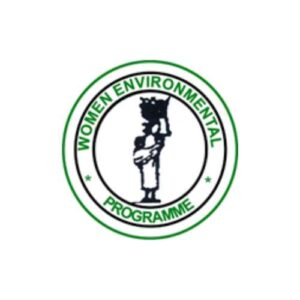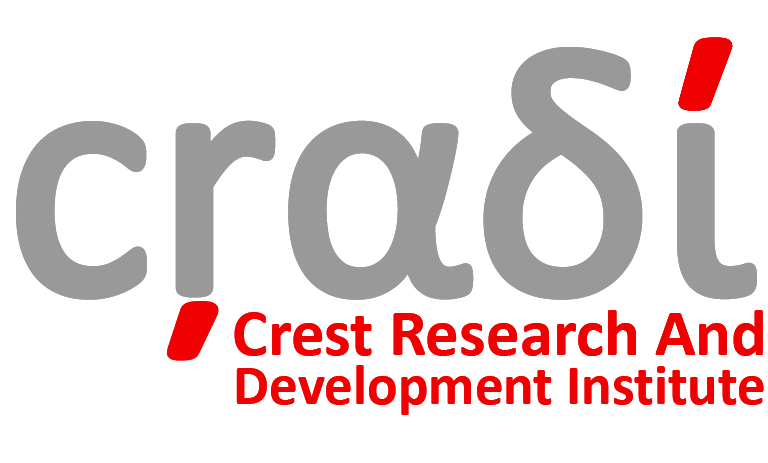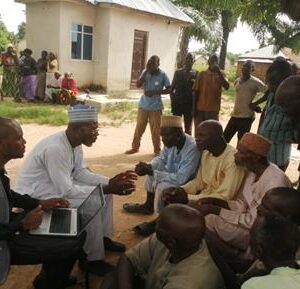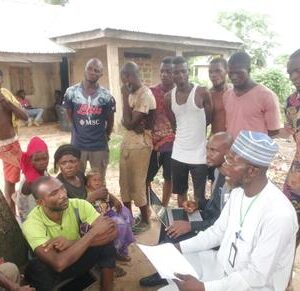Client - Women Environmental Programmes (WEP)

Objective:
part of Christian Aid's Global Climate Change and Sustainable Energy Programme (CCASE).
Practice Area:
Developmental Aid & Trainings
Status:
Completed
Locations:
Nigeria - Benue, Nasarawa, Kaduna States
Start Date:
September 2023
End Date:
November 2023
Project Summary
Baseline Evaluation study: Actions To Combat Climate Threats In Nigeria (ACCT) In Benue, Nasarawa And Kaduna States. The project is part of Christian Aid’s Global Climate Change and Sustainable Energy Programme (CCASE).
Project Overview
A vast majority of the rural population in Nigeria depends on farming activities as agriculture employs 70% of the country’s labor force. Unfortunately, the agricultural sector has severely suffered from climate change impacts, affecting food production and posing a threat to food security. Extreme climatic events, such as floods, droughts, and desertification, have reduced the size of arable lands, significantly impacting agricultural productivity. This situation has pushed many people, especially women and other vulnerable groups, into poverty. Climate change also affects energy resources, such as biomass and water, and the intensive use of biomass as cooking energy for many households, coupled with low access to clean and sustainable energy, hinders effective adaptation to the impacts of climate change among rural and vulnerable populations. This necessity has led to the design of the Actions to Combat Climate Threats (ACCT) in Nigeria Project.
The project is part of Christian Aid’s Global Climate Change and Sustainable Energy Programme (CCASE), which aims to ensure that women and marginalized people facing the worst impacts of the climate crisis are more resilient to existing and future climate shocks and have enhanced food security. The ACCT in Nigeria project aims to enhance the resilience of women and vulnerable groups in local communities to cope with the impacts of climate change, particularly in the agriculture and energy sectors in FCT, Nasarawa, and Benue states of Nigeria. This will be achieved through: promoting sustainable agricultural practices to create improved livelihood opportunities and food security for marginalized groups; facilitating access to sustainable energy for local communities; and promoting sustainable agricultural practices for improved livelihood opportunities and food security for marginalized groups.
The ACCT in Nigeria project is being implemented in Benue State (Makurdi Local Government), Nasarawa State (Lafia Local Government), and Kaduna State (Kaura Local Government) by the Women Environmental Programme (WEP) in partnership with Christian Aid Nigeria.
The study employed a mixed research method, combining qualitative and quantitative results-based approaches to gather insights from diverse stakeholders. This inclusive and solution-oriented process involved key stakeholders, including women, men, climate justice advocates, civil society organizations, women agricultural cooperative leaders, government ministries and parastatals, and Persons With Disabilities (PWD). The evaluation was guided by the project’s theory of change and logical framework.
TRAININGS; Building capacity and strengthening systems
Project: Project: Promoting Local Response Capacity and Partnership (PLRCAP) Phase 1 and 2 June 2022- September 2023
Capacity strengthening for programmes, Monitoring, Evaluation and Learning Mentors
Promoting Local Response, Capacity and Partnership Initiative in Nigeria (PLRCAP) is an initiative of the INGO Forum of Nigeria, (NIF). NIF is an inter-agency network of international NGOs, established in 2014 to facilitate the coordination and cooperation of humanitarian aid and development between INGOs and among INGOs and external stakeholders, including the Government of Nigeria, Nigerian civil society, UN agencies, diplomatic actors, and donors.
NIF is hosted by iMMAP, an international non-governmental organization (INGO) that provides targeted Information Management (IM) support to partners responding to complex humanitarian and development challenges.
As an initiative of Nigeria INGO Forum (NIF), PLRCAP was launched in November 2019 to provide institutional strengthening to local and national organizations working in the humanitarian response in Northeast Nigeria. The objective of PLRCAP is to deliver a training curriculum to build organizational sustainability, create partnership and mentoring opportunities to support learning, and create networks that will result in a stronger, more sustainable local humanitarian response. PLRCAP just concluded the training and mentoring of its second cohort and the training program focused on the critical areas for organizational sustainability which include stakeholder trust, consistent flexible financing and impactful programming. To help develop these strategic elements, the program delivered training and mentorship on ten “sustainability pillars” namely:
- Effective Governance
- Human Resource & Finance Management
- Strategic Visioning & Planning
- Resource Mobilization
- Web Development & Management
- Project Management & Implementation
- Strategic Partnership & Network
- Leadership
- Communications & Branding
- Organizational Development & Change Management
CRADI was engaged as a third-party monitoring, evaluation, and learning expert organization. We play a crucial role in building the capacity of Civil Society Organizations (CSOs) across Northeast Nigeria. Our involvement in the PLRCAP project involved facilitating training sessions on Monitoring, Evaluation, and Learning (MEL) for the PLRCAP cohorts of CSOs. These training sessions were an integral part of the forum’s organizational strengthening and sustainability efforts. Additionally, we facilitated training sessions on Planning, Monitoring, Evaluation, and Learning (PMEL) to enhance the capacity-building and sustainability efforts of participating organizations.
Project Gallery




